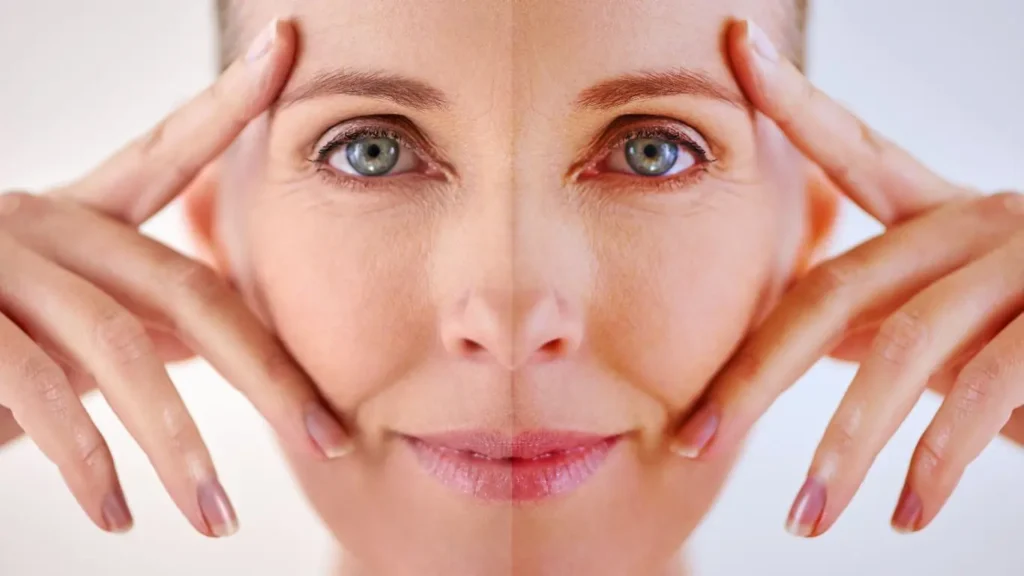
Stem cell regeneration therapy has worked outstandingly towards slowing down and perhaps reversing the process of aging by promising activation for reconstruction and repair in tissues. However, this aspect is under translation and is incomplete in its applicability in humans for the incomplete reversal of aging. The manipulation of stem cells reverse aging, hence implemented against inflammation and oxidative effects—is required, having been reflected in some promising testimonies by animal models.
In a Hurry? Dial 312-374-3352 now!
How Do Stem Cells Reverse Aging?
Regenerative Tissue Activity
Stem cells would mainly function in replacing various cell types, replacing aged or damaged cells by being involved in repair and regeneration in several types of tissues and organs-initiated activity.
Anti-Inflammatory Activities
Having the ability to secrete various factors regulating inflammatory responses of the body is highly critical for maintaining immune balance and controlling age-associated inflammation.
Cell Metabolism Support
Growth factors regulate the metabolism and functions of cells by providing the stem cell mechanism that keeps a cell in its youthful state.
Prevention of Senescence
The stem cells combat damage inflicted over time by the aging feature of cellular senescence and the supplanting process of senescent cells, together with the induction of newly grown healthy cells.
Will Stem Cells Reverse Aging and Make You Younger?
Activated stem cells influence the formation of collagen in the skin and thereby teach the skin to bear fine lines and wrinkles, so that the texture of the skin improves to be able to look younger and have a smoother appearance.
Collagen vs. Stem Cells: Who’s the Winner?
Stem cells have a lot to do with the cellular repair and regeneration for much more prolonged skin rejuvenation at extensive levels, to stimulate collagen and elastin production; whereas, collagen is a type of protein and a structural support for surface layer plumping and hydration. For instance, a collagen treatment may produce results very quickly, yet doubtfully would last. Compared to very shallow treatment for external effects like collagen treatment, stem cell therapy goes deeper into and is more complex in age reversal, showing how stem cells reverse aging.
What Are the Side Effects of Stem Cell Therapy?
Some adverse effects associated with stem cell therapy may be mild and relatively common, such as nausea, fatigue, and pain. Others are severe, such as infections, graft-versus-host disease (GVHD), and secondary cancers. The side effects can also vary due to the nature of the stem cell transplant procedures performed, conditioning agents used, or individualized patient characteristics and risk factors. Short-term concerns would include low blood counts, mouth sores, and gastrointestinal complications, whilst long-term ones would relate to sterility and organ damage.
Short-Term Side Effects
- Gastrointestinal problems: Common side effects of a stem cell transplant are nausea, vomiting, diarrhea, and sores in the mouth due mainly to the chemotherapy that was given before the transplant.
- Infections: These patients can have any viral, fungal, or bacterial infection due to a reduction in blood cells.
- Fatigue & low counts: Patients could suffer from fatigue, anemia, and low platelet counts, which would all require blood transfusions.
- Skin and hair: Hair loss and skin reactions at the injection site.
- Infusion-related symptoms: Some people have these symptoms of fever, chills, headache, or flush during infusion.
Long-term Side Effects
- Graft-versus-host disease (GVHD): If the underlying stem cells are from a donor, then the cells have the potential of attacking the recipient’s healthy tissues, resulting in this disease. New cancers may develop long after some stem cell transplants, and this may have some associated risks.
- Status of fertility: Conditioning treatment can cause gonadal damage due to the aggressive nature of the procedure, affecting fertility.
- Organ damage: Long-term complications can develop in the liver, kidney, or lung.
- Cataracts: These develop early in life in some patients. Musculoskeletal weakness and bone weakness are other probable long-term complications resulting from the procedure.

In a Hurry? Dial 312-374-3352 now!
Advantages of Stem Cell Therapy Regarding Aging
- Feeling better and younger.
- A more heightened ability in physical activities.
- Better density and quality of hair.
- Increase in libido.
- Decrease in pain.
- Improved strength, balance, and overall mobility.
- Better immunity.
- Overall quality of life improvement.
- Regulates the immune system.
Frequently Asked Questions on Stem Cells on Aging
Stem cells are a relatively new field of research, and much still has room to grow toward a technique that eventually will stop aging. A variety of determinants, such as stress, pollution, lifestyle, injury, disease, toxins, and many more, speed aging, with some recent evidence indicating that stem cells reverse aging, showing that it may even delay or reverse aging itself, at least at the cellular level.
Epigenetic changes drive aging, not in the DNA; hence, the reversal of those changes allows for the extension of lifespan. These changes are brought about not by similar genetic alterations but due to chemical alterations of DNA, and thus, aging is slowed down by behaviors of physical activity.
When Is It Possible To Reverse Aging?
It is perhaps impossible to say when reverse aging would first appear in a way more human and realistic. The science is yet very young and is only months and years away from handling the fundamental advances one would need to cover the ranges of origins for the biological processes to aging: there is a huge amount of work done already on different approaches to the problem so far, but it must also be said that none up to now has reached anything like convergence on a way forward with humans.
When Do Stem Cells Stop Producing?
Humans never cease producing stem cells. Their number, however, decreases in potency with aging. All throughout life, stem cells are important to an individual’s body for tissue repair and regeneration purposes. With age, the ability of stem cells gradually reduces, thus impairing their regenerative capacity while increasing the likelihood of the onset of degenerative diseases.

Why Do We Age If Our Cells Continue to Re-Generate?
Most cells have some regenerative capacity. Age, however, is caused by many mechanisms, and some cells eventually lose their ability to regenerate with time, as is the case with those embryonic-like stem cells or Purkinje brain cells that cannot regenerate anymore and degenerate with age. Research into how stem cells reverse aging suggests that enhancing their regenerative functions could help counter these degenerative processes, which give rise to dysfunctions manifested in diseases like diabetes and impaired brain cell regeneration.
Aging is caused by Epigenetic changes, Such as DNA Methylation in the Mouse Cochlea, restricting the Ability of Cells to Mature or adapt to Changes for Regeneration.
Among the factors is interleukin-1 alpha, which changes the regenerative atmosphere to one that favors proliferation by cells. Along with these factors, others seem to reach a threshold quite suddenly, which changes a population of otherwise regenerative cells; thus, they induce aging.
When Can We Expect Anti-Aging Pharmacotherapy To Be?
At present, there are some minor-known potential anti-aging effects with some medications, such as Metformin and Rapamycin, but they are not classified as such. In development are future anti-aging medications, including senotherapeutics aimed at senescent cells; however, this will take an awful long time to develop, anything over 10-20 years before they are available to the public. This is only possible in conjunction with lifestyle measures, adding yet another avenue in anti-aging research.
Bottom Line!
Stem cell regenerative therapies can repair, revitalize, and restore all functions of the body, even down to the cellular level. We, at Dvida Med Spa, hold ourselves at the par of anti-aging based on scientific medicine and at the forefront of this field with advanced techniques that would bring back the youthful feel and look together with the invigorating energies, renewing skin, and reliving the joy of life based on the research use of stem cells to reverse aging.
Can stem cells reverse aging? The answer is yes, so book today with Dvida Med Spa in Cary, NC, and Raleigh, NC, for your personalized stem cell consultation, and step into the future of regenerative wellness.
Just call or visit the website to fast-track your transformation!
In a Hurry? Dial 312-374-3352 now!

